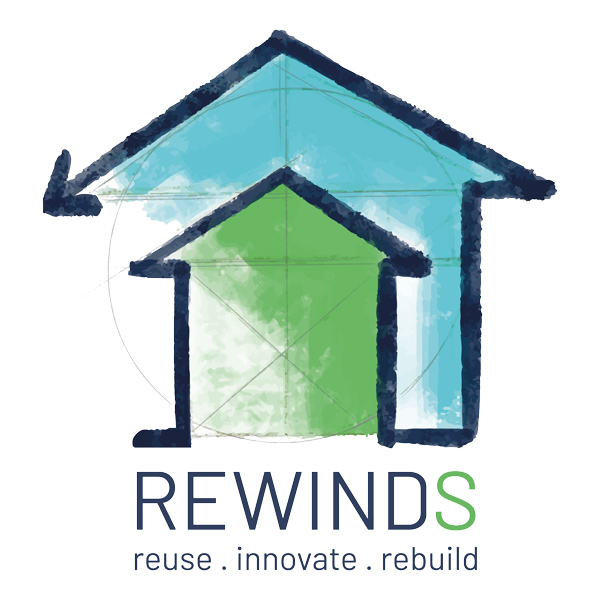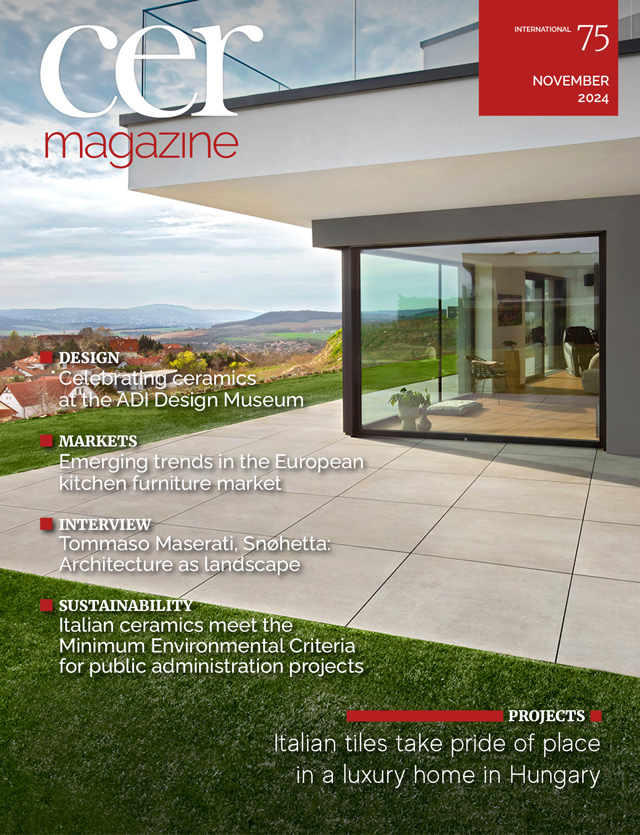New life for construction and demolition waste
(November 2024) | The construction industry is evolving rapidly and now faces an unprecedented challenge in terms of waste management. Each year, more than 750 million tonnes of Construction Demolition Waste (CDW) is generated in Europe, making this one of the sector’s biggest environmental challenges. However, the construction industry’s environmental impact goes well beyond waste production as it accounts for 50% of all energy and raw material consumption, 40% of CO₂ emissions and over 30% of water usage. These impacts extend over the entire building life cycle, from raw material extraction to demolition. To address these issues and meet EU targets, including the Paris Agreement on climate change and the UN 2030 Agenda, it is essential for the entire sector to transition towards a circular economy.
 REWINDS – REcycling of Waste Into New Demonstrated Sustainable Solutions – is a research project set up to address these critical challenges in the construction sector. Funded by the European Union through the Emilia-Romagna ERDF Regional Programme 2021-2027, the project aims to develop sustainable, high-performance building materials using CDW as a raw material. To guarantee their reliability and performance, these materials will undergo rigorous testing and validation in both laboratories and pilot buildings. In essence, the mission of REWINDS is to transform waste into valuable resources in accordance with the principles of the circular economy.
REWINDS – REcycling of Waste Into New Demonstrated Sustainable Solutions – is a research project set up to address these critical challenges in the construction sector. Funded by the European Union through the Emilia-Romagna ERDF Regional Programme 2021-2027, the project aims to develop sustainable, high-performance building materials using CDW as a raw material. To guarantee their reliability and performance, these materials will undergo rigorous testing and validation in both laboratories and pilot buildings. In essence, the mission of REWINDS is to transform waste into valuable resources in accordance with the principles of the circular economy.
The project is led by a consortium of four research laboratories belonging to the Emilia-Romagna Region’s High Technology Network: Certimac (project leader), Centro Ceramico, CNR-ISSMC and TekneHub. They are joined by nine highly specialised companies representing the entire regional building supply chain, from waste recovery through to the production of new materials and construction systems, which are ready to bring the results of industrial research to market: ACER Bologna, Ceramiche Serra S.p.A., CMCF Soc. Coop., Ecofelsinea S.r.l., Litokol S.p.A., Recter S.r.l., URSA Italia S.r.l., WASP S.r.l. and Wienerberger S.p.A.
The innovative process adopted by REWINDS aims to overcome the limitations of using CDW as new secondary raw materials. These limitations include technological challenges (such as difficulties in sorting and separating fractions with a consistent and homogeneous composition), performance issues (properties and characteristics that are not always comparable to those of virgin materials), legislative aspects (barriers and constraints imposed by existing laws and practices) and cultural obstacles (prejudices against the use of materials deriving from waste).
The project follows a five-stage roadmap: analysis of CDWs, formulation and development of innovative solutions, sustainability evaluation through Life Cycle Assessment (LCA), laboratory testing and application in pilot buildings.
The first phase of the project, launched in February 2024, involved collaboration with partner companies responsible for recovering and managing CDW to assess volumes, needs and priorities. Over the past few months, various types of waste have been analysed and selected, necessary processes and treatments evaluated and initial product mix designs developed. The selected materials include ceramic products, artificial aggregates from demolished concrete, insulating materials (such as mineral wool and expanded materials), wood residues and excavated soil.
In the subsequent project phases, technologies will be used to optimise different types of waste for both traditional uses (such as masonry bricks and blocks, ceramic tiles, various types of agglomerates, substrates and insulators) and innovative applications (including mixtures for additive manufacturing, geopolymers and alkaline-activated materials).
The selection of end products and their design mixes will be guided by key market requirements in close collaboration with partner companies that process and manage waste and manufacture building products. It is only by addressing these two needs and areas of expertise that the project will be able to effectively respond to both environmental and market demands.
The most promising solutions will be validated through laboratory testing, on full-scale models and prototypes, and in trials at selected pilot sites to determine their applicability, durability and compatibility with existing and traditional materials.
In conclusion, REWINDS provides a practical solution to the emerging challenges of the building industry and makes a significant contribution to reducing its environmental impact.
Collaboration between research, industry and institutions is essential to the success of this project, which reaffirms the pivotal role that materials play in the construction process.
Authors:
Simone Bandini, Certimac, Faenza (RA);
Maria Chiara Bignozzi, Centro Ceramico, Sassuolo (MO);
Annalisa Natali Murri, CNR-ISSMC, Faenza (RA);
Valentina Frighi, TekneHub, Ferrara.





